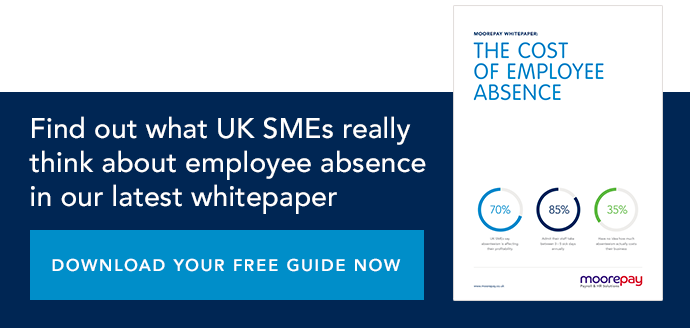How to Handle Employees Wanting Time Off Work to Attend a Wedding

We are heading towards wedding season again, with the Royal nuptials between Prince Harry and Meghan Markle set to herald the start of the season proper on 19 May.
The UK has seen a rise of 1-in-3 couples choosing a mid-week wedding during the past seven years, with the most popular day being Thursday. Couples are shunning the traditional Saturday as they seek to save money, secure availability for key roles (such as photographers and catering), and take advantage of cut-price deals.
With this trend only set to continue, companies can be inundated during the summer months with employees asking for time off work for their wedding, or to attend another wedding as a guest.
So how should employers handles these requests?
Employees’ standard entitlement to time off work
In the UK the law does not allow employees a statutory right to time off work to:
- move house
- get married
- go on honeymoon
So, unless their contract of employment states otherwise, an employee will have no automatic entitlement to time off to attend a wedding unless they request the time off as annual leave through their company’s normal internal holiday process.
In Europe, particularly Spain, employees are entitled to 15 days’ annual leave when they get married, and one day’s annual leave when they move house.
In the UK, full time employees are entitled to 5.6. weeks (28 days) paid annual leave each year which generally includes the Bank Holidays, with a pro rata calculation covering leave entitlement for part time employees.
What about ‘special’ time off for a honeymoon?
If employees request an extended period of annual leave for a honeymoon it will normally be taken as unpaid leave, or they could use their remaining annual leave entitlement with their employer’s permission. Each employer needs to determine the provisions offered to employees within the contract of employment or staff handbook, as some employers do allow employees extra time off work on full pay for special occasions.
Employees should be encouraged to provide plenty of notice when submitting their request for time off so the business can coordinate leave with colleagues, ensure operational business requirements are met, and resolve any difficulties in advance.
Are there any problems with offering ‘wedding leave’ as a perk?
It could arguably be unlawful for a company to offer an employee extra annual leave during the holiday year due to their plans to get married, as it could be challenged by unmarried colleagues as less favourable treatment under the Equality Act.
What if the wedding is on a week day?
A request for time off to attend a week day wedding should also be submitted as a request for annual leave, or it could be granted as unpaid leave. The company should require plenty of notice to ensure the employee’s absence is covered by colleagues.
This is particularly important for teachers (who get approx. 13 weeks’ holiday a year in-between term time) whose leave decision would be considered by their Head Teacher and the School Governors.
However this does have its drawbacks.
Employees must remember they are working the following day and curb their celebrating (drinking), and perhaps leave the party early.
If an employee fails to attend work the following day after attending a wedding, then companies should follow their internal procedures to deal with the employee’s unauthorised absence.
What if the wedding is on a bank holiday?
If a bank holiday is a normal working day for them, then an employee attending a wedding – either as the bride, groom or a guest – should give the company plenty of notice and submit an annual leave request.
Again, if an employee fails to attend work the following day then the internal process should be followed to deal with the unauthorised absence.
What does an employer need to do if/when an Employee changes their surname?
An employee may change their surname by either deed poll or upon marriage, as they may take their partner’s surname or adopt a double-barrel surname.
There is no formal process required to change their surname, although a legal declaration will be required for a passport and driving licence.
Their birth certificate will remain the same.
Employees are required to advise their employer of any change of name, and can use their deed poll or marriage certificate as evidence.



